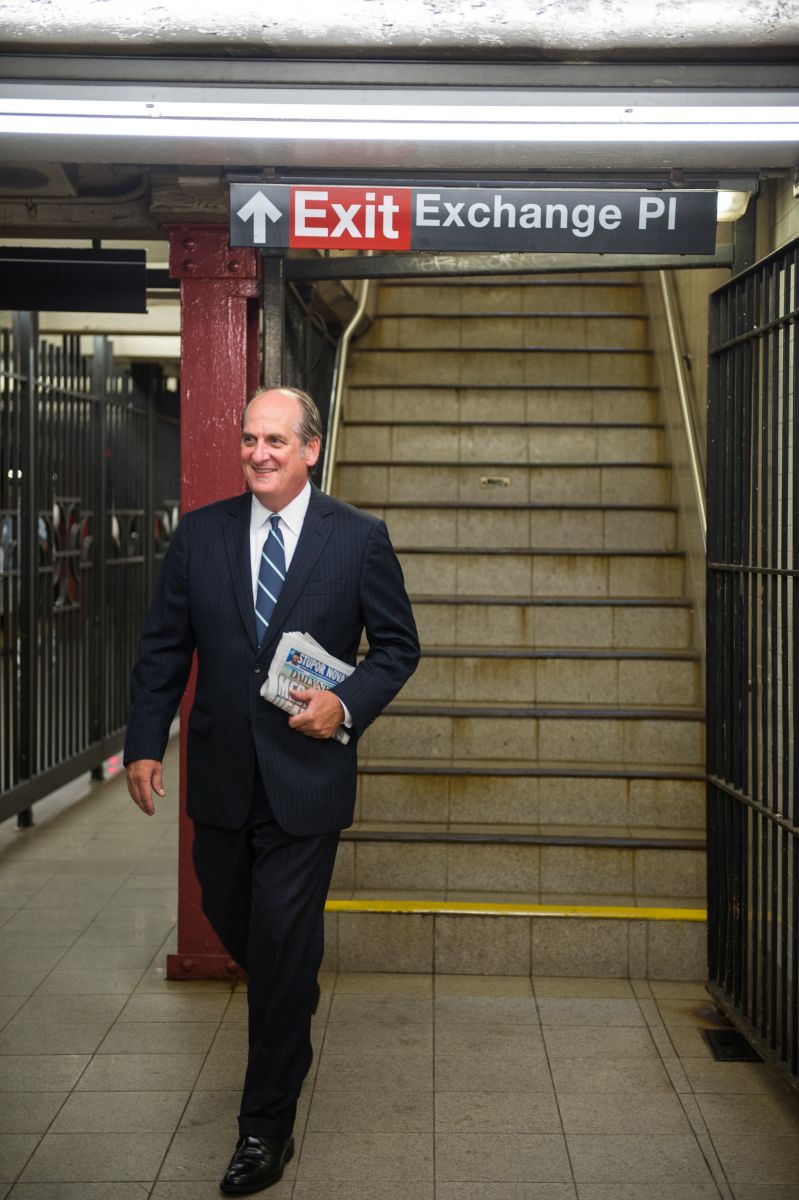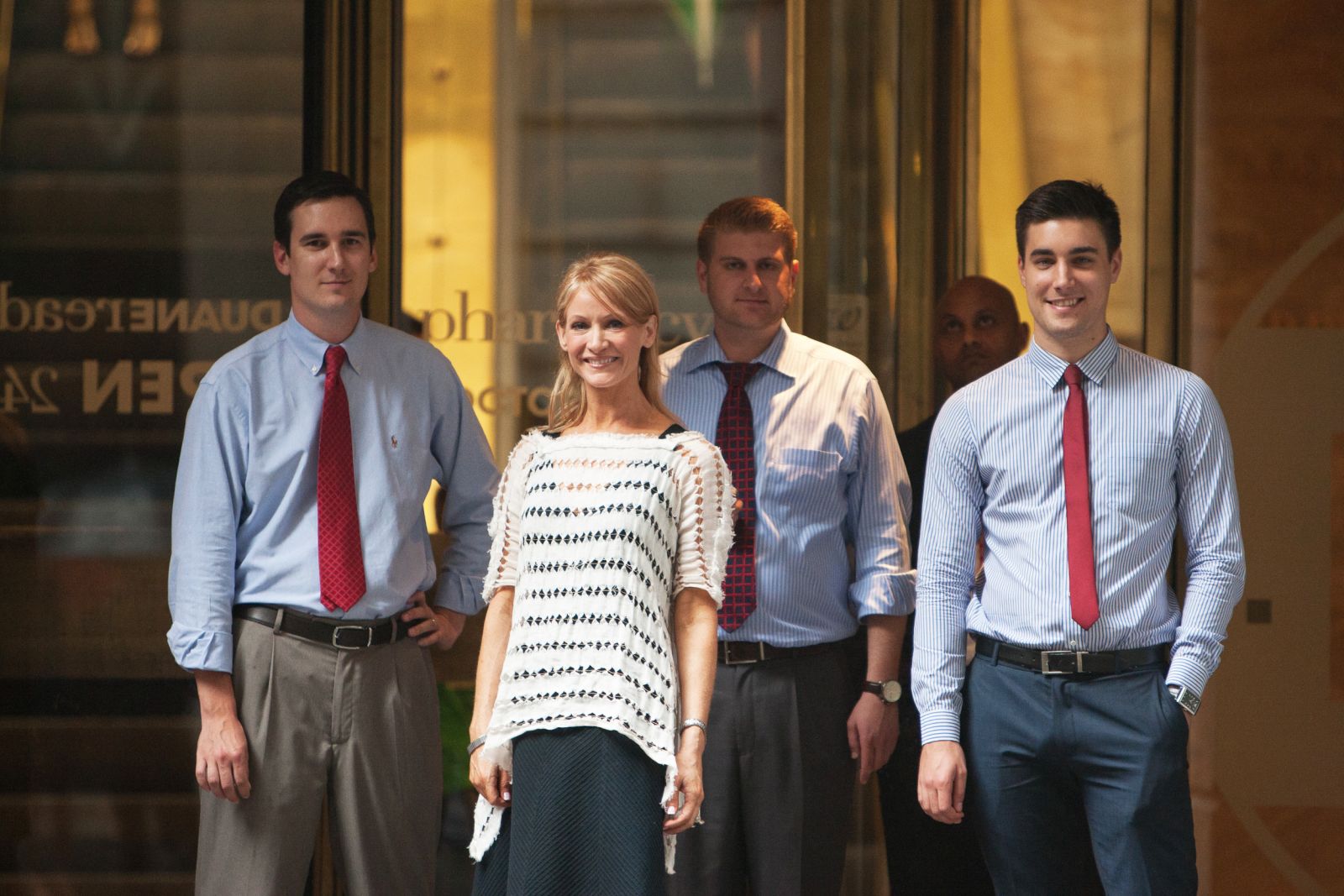 To our knowledge, EGR International was the first among the very few traditional marketing, incentive, or recognition companies that has made a formal commitment to the engagement field. As a founding sponsor of the Enterprise Engagement Alliance in 2008, EGR International, which had its roots in the promotional marketing, meetings, events and incentive business, made a strategic decision to focus on enterprise engagement, spearheaded by Jeff Grisamore, the company’s President.
To our knowledge, EGR International was the first among the very few traditional marketing, incentive, or recognition companies that has made a formal commitment to the engagement field. As a founding sponsor of the Enterprise Engagement Alliance in 2008, EGR International, which had its roots in the promotional marketing, meetings, events and incentive business, made a strategic decision to focus on enterprise engagement, spearheaded by Jeff Grisamore, the company’s President.
Today, as the EGR website makes clear, the company has completed its shift to engagement and performance, rather than focusing on the specific promotions, face-to-face experiences or incentives that are part of the engagement toolkit. After seven years, we thought it would be a good time to check in with Grisamore to find out what the company has accomplished and what lessons have been learned on this journey.
ESM: You were one of the first companies we know of to officially proclaim yourself to be an Engagement Agency. What does that actually mean in terms of what you do for your clients that’s different from being an incentive, promotion, or loyalty company?
 Grisamore: In our view, building a critical mass of engagement on behalf of our clients goes well beyond the narrow confines of providing an incentive, delivering a promotion or helping with “loyalty.” Our approach to engagement is altruistic – we start with a clean slate to discover, to strategize, to analyze, to research and then to offer the best possible solutions that will produce results that are defined chiefly by return-on-investment and sales/marketing outcome.
Grisamore: In our view, building a critical mass of engagement on behalf of our clients goes well beyond the narrow confines of providing an incentive, delivering a promotion or helping with “loyalty.” Our approach to engagement is altruistic – we start with a clean slate to discover, to strategize, to analyze, to research and then to offer the best possible solutions that will produce results that are defined chiefly by return-on-investment and sales/marketing outcome.
Our approach is awards-neutral – whereas in the traditional incentive business, the vast majority of solutions are delivered in an awards-first package. We think well beyond that boundary, and as a result our programming looks different, which can produce dramatically different results. We’ve taken what we’ve learned in the advertising, promotion and incentive business and extrapolated those key elements that work from a motivational and empirical standpoint and overlaid them onto distinctly new programming for the new economy in which we find ourselves.
If you take a look at our website and our social media presence, you’ll see a different approach defined by a fresh, new angle involving new media, social technology and creative thinking that’s taking our clients to new levels of productivity. We’re very happy to be firmly planted as a uniquely qualified engagement agency with a legacy of 45 years in the advertising, marketing, promotion and incentive industries.
ESM: We’re seeing more and more solution providers in incentives, recognition and loyalty using the term engagement. What do you think is necessary to actually deliver the promise made in using that word on a website or in your branding?
Grisamore: In my opinion, the word “engagement” is the current darling of the incentive/recognition/loyalty industry. I think you see everyone using it because the traditional incentive industry is increasingly competitive, fraught with important identity/ROI challenges, with many companies in that space seeing dramatic market share decreases. As a result, they seek to differentiate themselves from this crowded field by claiming to be an ‘engagement agency.’ That only works to a certain extent, because once they’re in a highly competitive situation with companies that are in this space every day, typically the cat is out of the bag quickly.
 In order to deliver on the engagement promise, companies need leading-edge, in-house program and visual design and media expertise that produces exceptional consultation, strategy and program delivery. In addition to strategic services groups that can identify, understand and solve important client marketing problems – and, most importantly, be able to deliver highly complex, intricate and multi-year solutions – solution providers have to have a business model to support programs that in many cases have no awards component whatsoever. Additionally, companies absolutely must have social media expertise in-house and be able to offer solutions via social media and social technology. These are important differentiators that are difficult to fake.
In order to deliver on the engagement promise, companies need leading-edge, in-house program and visual design and media expertise that produces exceptional consultation, strategy and program delivery. In addition to strategic services groups that can identify, understand and solve important client marketing problems – and, most importantly, be able to deliver highly complex, intricate and multi-year solutions – solution providers have to have a business model to support programs that in many cases have no awards component whatsoever. Additionally, companies absolutely must have social media expertise in-house and be able to offer solutions via social media and social technology. These are important differentiators that are difficult to fake.
ESM: What did your company have to do to prepare its team and its customers for this new focus?
Grisamore: At EGR we’ve had to re-engineer our firm to adapt to the new business reality that new challenges are going to require new thinking. We’ve had to make incremental human resources increases in our design and media agency, BlackLab Media, over the past three years and make corollary new investment in our in-house Strategic Services Group, so that we can deliver on the promises that we’re now able to make. We’re hiring an entirely new type of employee – top level business school graduates who are strategically focused with a high degree of empirical footing who can provide the consultative strategy necessary to compete with a new type of competitor: consulting firms, advertising agencies and more traditional marketing agencies.
I want to make this clear, however: We have moved dramatically over the past 4-5 years into the engagement space, but we have not left behind any of our traditional service areas or customers. We’ve move into engagement not out of any other industry. We just approach our business differently, and our existing customers are thrilled with our range of new capabilities and services. They’re embracing us more now than they did prior to our transition.
ESM: How has it worked out for your company and clients? What are some of the plusses? What are some of the challenges?
 Our company now has a much more diversified and relevant service delivery portfolio with a much higher degree of expertise in areas we couldn’t have even spoken about four to five years ago. Our current clients love the expanded product and service portfolio, and we’re generating significantly higher levels of penetration and market share due to our expanded reach, which is a direct result of our investment in digital, interactive, social media technology and, of course, engagement.
Our company now has a much more diversified and relevant service delivery portfolio with a much higher degree of expertise in areas we couldn’t have even spoken about four to five years ago. Our current clients love the expanded product and service portfolio, and we’re generating significantly higher levels of penetration and market share due to our expanded reach, which is a direct result of our investment in digital, interactive, social media technology and, of course, engagement.
There really are no major challenges per se. I think the biggest problem we have is in straddling the line between our lineage in the performance improvement space and where we find ourselves now in the consulting/advertising/new media/engagement space. But once the prospects who identify us as a candidate partner get to understand our product and service portfolio, they can easily distinguish us from other competitors, and so far have generally gravitated toward our approach.
ESM: What percentage of new prospects and clients are actively interested in engagement? How has that changed over the past few years?
Grisamore: We’re now fairly well established in the engagement space, so the vast majority, if not all, of our new prospects are interacting with us on an engagement footing. I want to make it clear that engagement programs can and in some cases do include incentives, meetings, rewards & recognition, etc., so much of our programming does still include elements of those services. We just approach it differently – more altruistically, as I mentioned earlier. In the past, we were never an ‘awards first’ shop, but now we’re entirely solutions focused and awards are only used if they can affect the desired outcome.
I’m optimistic about the new economy in which we find ourselves. I think it will quickly separate those who can and will succeed and those who will not. It will identify those that can prosper in this new economy, those that can diversify and embrace new thinking and new technology and in fact enjoy potentially unparalleled levels of success. We’re delighted with our direction and our decision to move into the new field of engagement, and we’re excited by the prospect of finding ever new directions, new solutions and new partners with whom we can share this journey.
Contact information:
Jeffrey Grisamore
EGR International, Inc.
30 Broad Street, 39th Floor
New York, NY 10004
212-884-1833 (p)
 ESM News Alert for the latest news. Subscribe here.
ESM News Alert for the latest news. Subscribe here.
